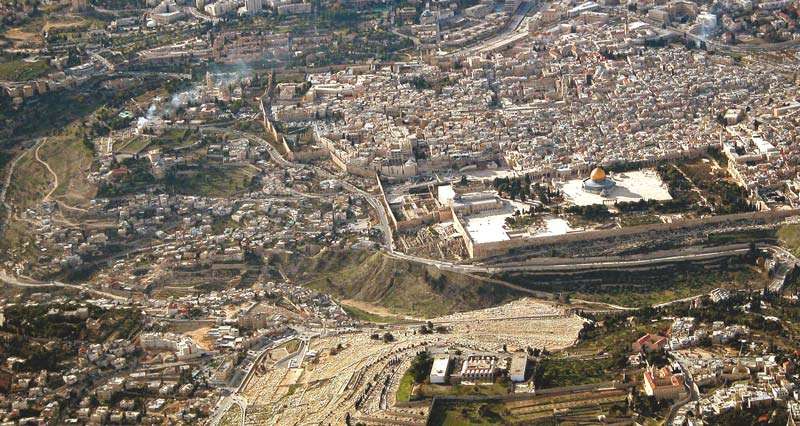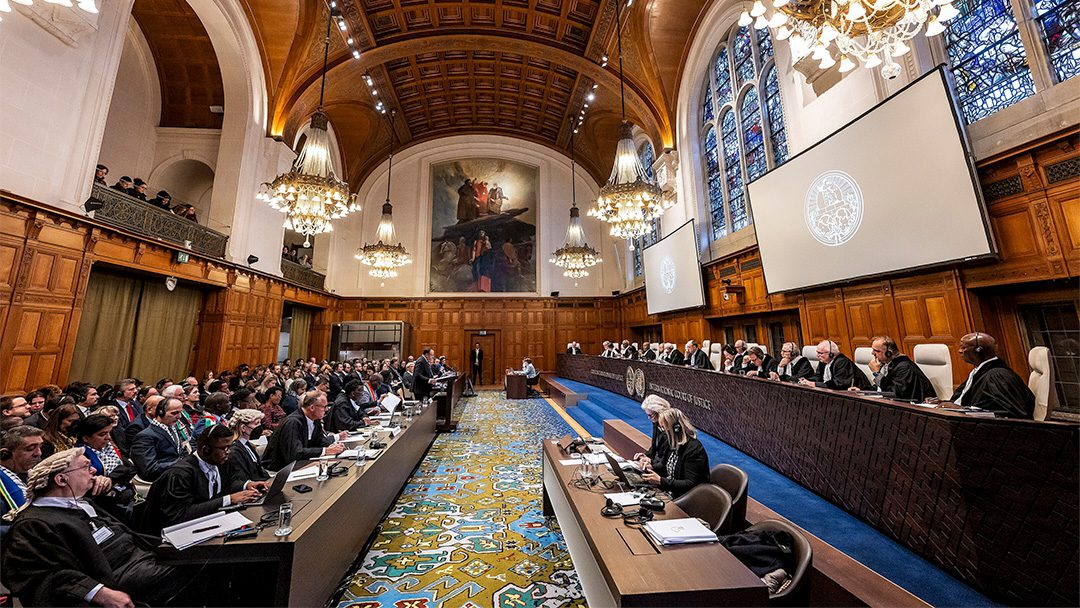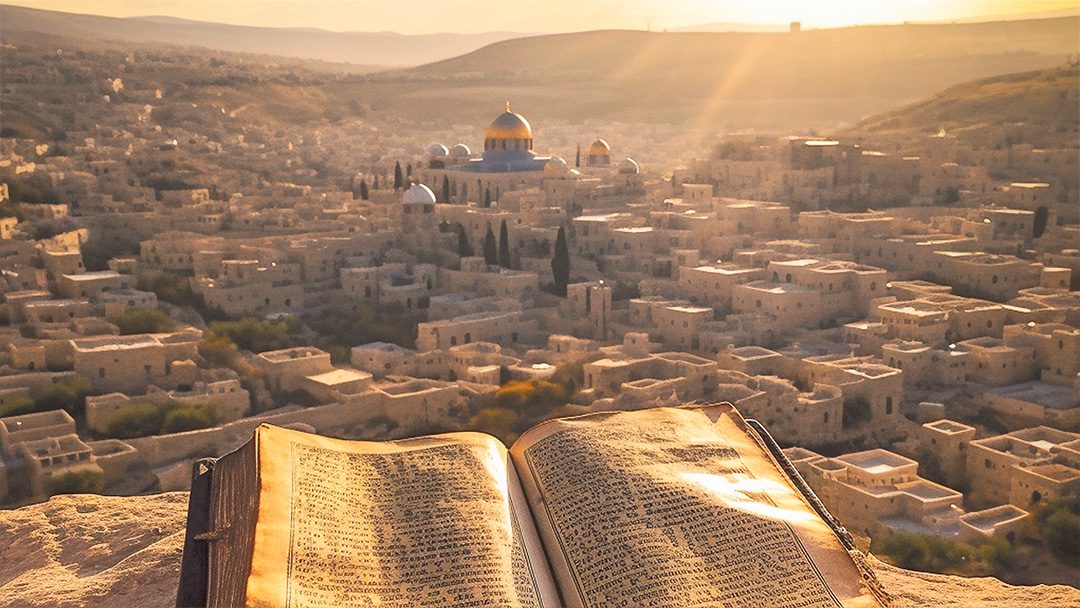It has got to be one of the greatest puzzles in foreign policy today. A city of under 1 million people, lacking major roads, waterways, or rivers. In fact, its mountainous terrain makes access a real challenge. It possesses no natural resources, except some religious sites. In other words, it has none of the normal ingredients of greatness.
Its international legal status continues to be in limbo. Though it serves as a capital city, no foreign embassies are found there. Yet, from the highlands of New Guinea to the jungles of the Amazon, the name recognition of this city is universal. It is the subject of frequent United Nations resolutions and causes foreign secretaries of major western countries to have sleepless nights.
The city in question is none other than Jerusalem. What we are going to discover is that the global spotlight will shine more and more in the coming days. It will go from a global ‘concern’ to ‘obsession.’ What’s more, this attention was forecast 2,500 years ago in Scripture.
Jerusalem has a 4,000 year old history. The first 1,000 years (2000 BC) it was as a heathen town called ‘Jebus,’ perched on a slope known as Ophel. Despite its size, it eluded capture and occupation by Joshua, the judges, and even King Saul. The second 1000 years (1000 BC) it was captured by Joab and David’s mighty men (II Samuel 5; I Chronicles 11). In a masterstroke of genius, David took this ‘neutral city’ that belonged to none of the Israelite tribes, and made it his capital and royal city. Once he moved the Ark of God there, Jerusalem became a holy city, known as the ‘City of David, City of God.’
Yet another dimension occurred that would catapult the city into prominence. In II Samuel 7 and I Chronicles 17, God made a covenant with David, known as the ‘Davidic Covenant.’ The terms were simple: God would give David a son who would rule on his throne forever.
Bonus point: David’s son would simultaneously be God’s Son as well. This Son would be known as The Messiah, the Anointed One (King of kings, Lord of Lords, Anointed of the anointed), Son of David – Son of God.
Will the nations of the world actually go to war against Jerusalem?
One thousand years later, a two thousand year old Jerusalem welcomed Jesus of Nazareth on His triumphal entry with cries of ‘Hosanna to the Son of David, Blessed is He who comes in the Name of the Lord.’ Yet, in a matter of days, this same city turned on Him with fury and He was crucified on a Roman cross. His crime was written above: Jesus of Nazareth, the King of the Jews.’
Decades later, David’s capital was destroyed by the Romans, the Jewish people were dispersed, and Jerusalem was occupied by a series of rulers: Romans, Byzantines, Persians, Arabs, Crusaders, Mamluks, Ottomans, British, and Jordanians. Then, on June 7, 1967, at the height of the Six Day War, the Israel Defence Forces captured the Old City and Mount of Olives and reunited the city. By the end of the month, Israel annexed the eastern sector, declared Jerusalem as its indivisible, united, and eternal capital. When it came to future peace talks with the Arabs, Israel declared ‘Jerusalem is not negotiable’ and this was its policy until 2000.
A Burdensome Stone
Zechariah prophesied that in the last days Jerusalem would become a ‘cup of trembling’ for the neighbouring nations (Zechariah 12:2). Anyone who drinks from the cup becomes senseless. There’s more: Verse 3 says Jerusalem will be a ‘burdensome stone’ for all people. Anyone who burdens themselves with it will be cut into pieces, despite the fact that all the people of the earth be gathered together against it.
Will the issue of Jerusalem and its ownership morph from mere international concern to international conflict? Will the nations of the world actually go to war against Jerusalem?
Consider the following:
1. UN Resolutions: Jerusalem has been the subject of 57 resolutions from 1947 to 2006.
2. Tel Aviv Embassies: All countries who have diplomatic relations with Israel refuse to accord de jure recognition of Jerusalem as capital to the Jewish state. Foreign embassies are located in Tel Aviv, 65 kilometres away.
3. ‘Jerusalem is Not Negotiable:’ This lasted until 2000 when Israeli Prime Minister Ehud Barak offered Palestine Authority President Yasser Arafat most of the West Bank and part of Jerusalem for a future Palestinian state. Though Arafat rejected Barak’s offer, the ‘genie’ of a negotiable, divisible Jerusalem never returned to the bottle – it has remained on the table ever since.
4. UNESCO Resolution October 2016: It refused to recognise the importance of the Western Wall and Temple Mount, known to the Muslims as al-Haram al-Sharif, to the Jewish people, as if the Dome of the Rock and al-Aqsa Mosque were the only shrines to ever exist there. Note: UNESCO Director General Irina Bokova and UN General Secretary Antonio Guterres did make conciliatory remarks to Israel; the latter affirming there was a Jewish temple on the mount.
5. UN Resolution 2334 December 23, 2016: Led by New Zealand, the Security Council passed this resolution (the US abstained) saying all territory not in Israel’s hands on 4 June 1967 (the day before the outbreak of the Six Day War), including the Old City, is ‘occupied Palestinian territory.’ That includes the Western Wall, Jewish Quarter, and Mount of Olives Jewish cemetery.
6. Paris Peace Conference January 2017: 70 countries came to discuss the fate of Israel, Palestine, and Jerusalem – 70 countries!
Yes, the world cares about Jerusalem and one day it will turn to conflict.
What’s All the Fuss?
The bottom line in the controversy of Jerusalem is theological. Jerusalem is the ‘City of the Great King’ (Ps 48:2; Matt 5:35). According to Psalm 2, the nations will be in turmoil and try to stop the coming of the king. According to Zechariah 14:3-4, they will fail and the king’s feet will stand on the Mount of Olives.
Zechariah’s scenario is quickly coming into focus. That is why people of faith are called to ‘pray for the peace of Jerusalem’ (Psalm 122:6).












0 Comments